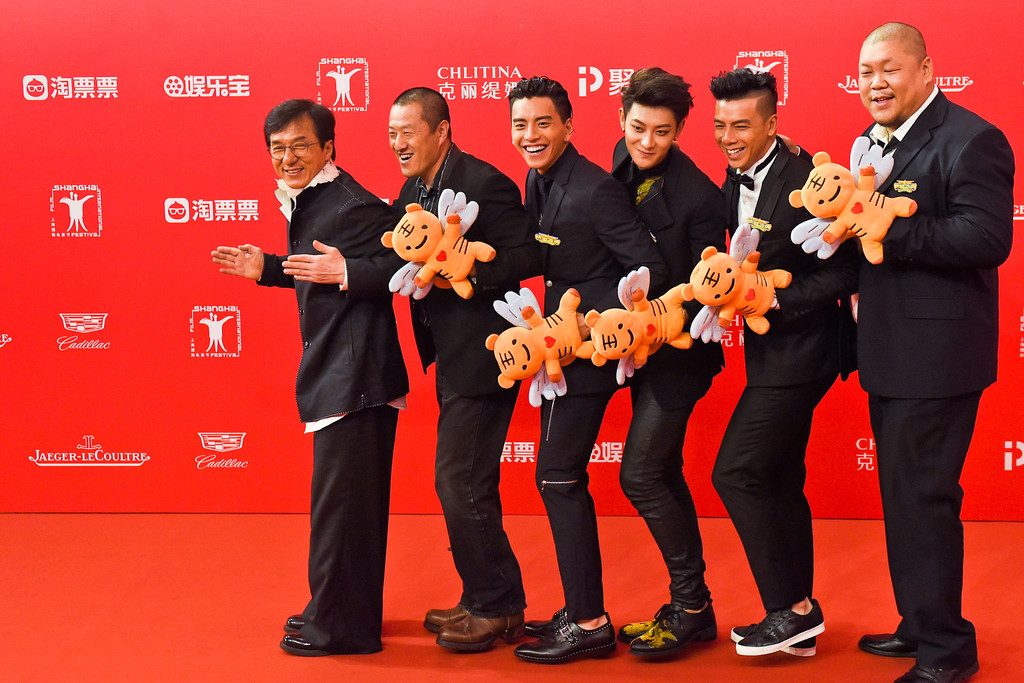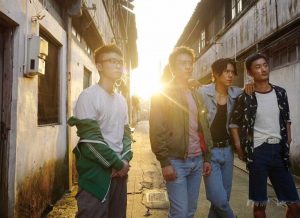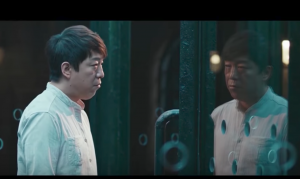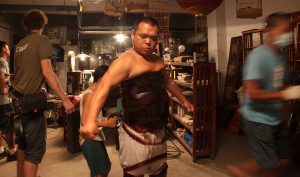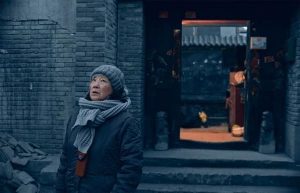The New York Asian Film Festival (NYAFF), North America’s leading festival of popular Asian cinema, which kicked off at the Film Society of Lincoln Center on June 30 and runs through July 16, showcases 57 feature films, including six films from China.
The Chinese films favored by international film festivals tend to skew toward the indie and artsy, and reveal too much (in the eyes of the Chinese government, that is) of Chinese society.
However, the NYAFF, which is now in its 16th year, has a different approach to programming. It strives to entertain.
While there are six Chinese productions, strictly speaking, in this year’s lineup, there are many more films from the Greater China region or that involve Chinese co-producers and actors. You may have missed last week’s gems, such as Battle of Memories, Someone to Talk to, or Soul on a String. But there’s still one week left. Here are the must-see titles that we’ve hand-picked for you that you can still go out and see.
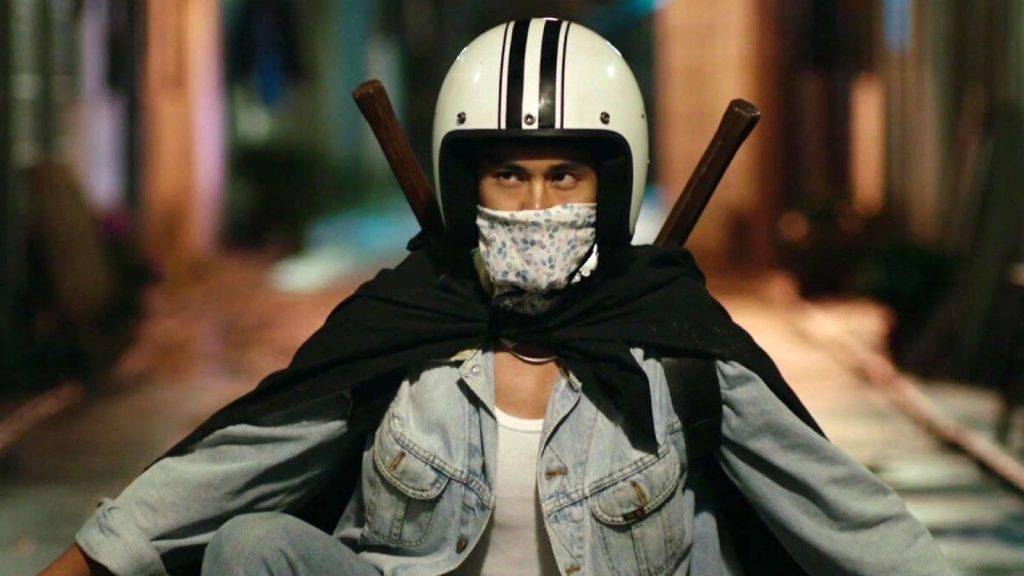
1. Duckweed (Dir. Han Han)
Within the flood of recent Chinese films about father-son reconciliation, Duckweed—powered by the easy charm of two of China’s most in-demand stars—is the most playful. After a reckless encounter with a fast-moving train in 2022, arrogant rally driver Tailang (Deng Chao, the one-man environmental hazard from Stephen Chow’s The Mermaid) is transported back to 1998, and enlisted into the gang led by his own father Zhengtai (Eddie Peng, taking a break from the gym to show his comedic chops). An existential crisis hits when Tailang realizes that his future mother is not yet on the scene, even though she must get pregnant soon before his father is imprisoned for six years. Highlights of their familial bonding include a farcical bedroom seduction scene. Han Han’s follow-up to his poetic The Continent accelerated past the billion yuan ($150 million) milestone domestically and boasts a rare 100 percent fresh score on Rotten Tomatoes. —NYAFF
Read CFI’s review of Duckweed here.
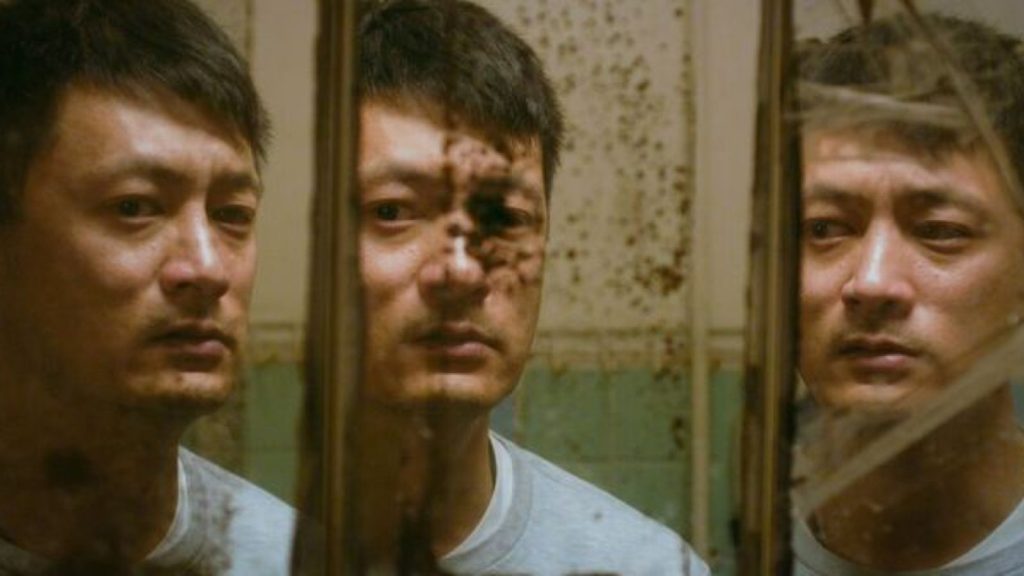
2. Mad World (Dir. Wong Chun)
After a mental breakdown triggered by a martyr-like devotion to his abusive and ill mother (Elaine Jin), Tung (Shawn Yue) undergoes a year of psychiatric rehabilitation and re-enters an uncaring society under the care of his estranged father (Eric Tsang), a truck driver who abandoned his family. They live in a subdivided flat with an eclectic mix of struggling neighbors, sharing a bunkbed and a folding table. A far cry from his previous job and social status as a rising investment banker, Tung and his father struggle in an unforgiving world. In 1973, Chor Yuen’s The House of 72 Tenants kickstarted a new era of proud, local Hong Kong cinema. Decades later, Wong Chun’s dramatic, heartfelt directorial debut promises the same but in a much harsher reality, stripped of the former film’s nostalgia and sense of community. —NYAFF
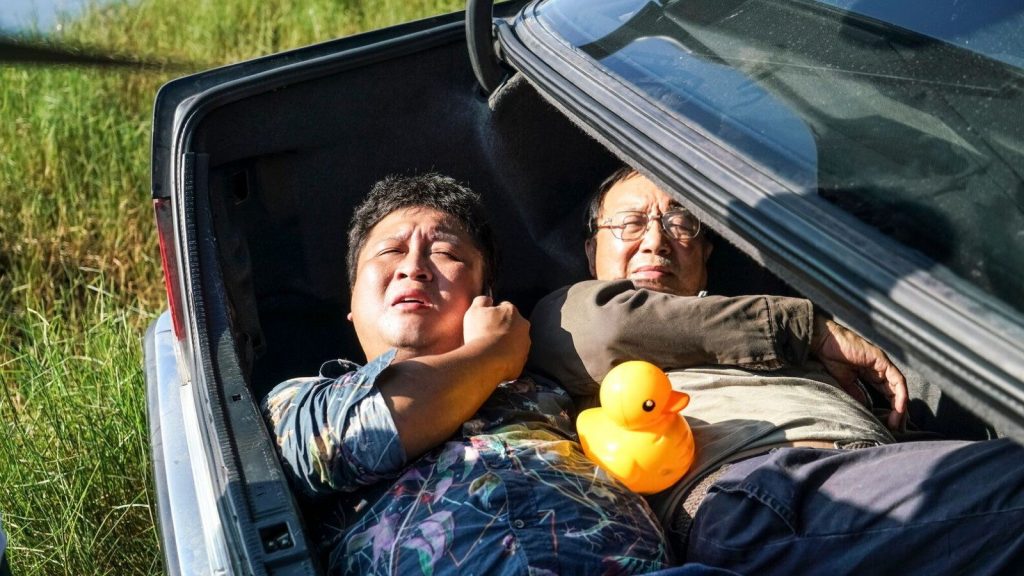
3. Godspeed (Dir. Chung Mong-hong)
Writer, director, and screenwriter Chung Mong-hong delivers a wry comedy of manners in the guise of a gangster noir. A sad sack slacker and small-time crook (Na Dow) is tasked by a taciturn mob boss to traffic a package down south; unable to find a proper means of transport, he is practically forced by old cabbie Lao Xu (Hong Kong comedy legend Michael Hui) to be his fare for the cross-country journey. What ensues is a postmodern reinvention of the comedic double act as the pair of unsuspecting drug mules incessantly bicker over money, share strange anecdotes about the meaning of life, and suffer an endless run of bad luck largely due to Lao Xu’s chronically poor decision-making. Meanwhile, the southern gangsters they are driving toward are having an existential crisis of their own, in a bloody maelstrom of plastic-wrapped furniture, chainsaw-unfriendly motorbike helmets, and vicious dog-eat-dog betrayal. —NYAFF
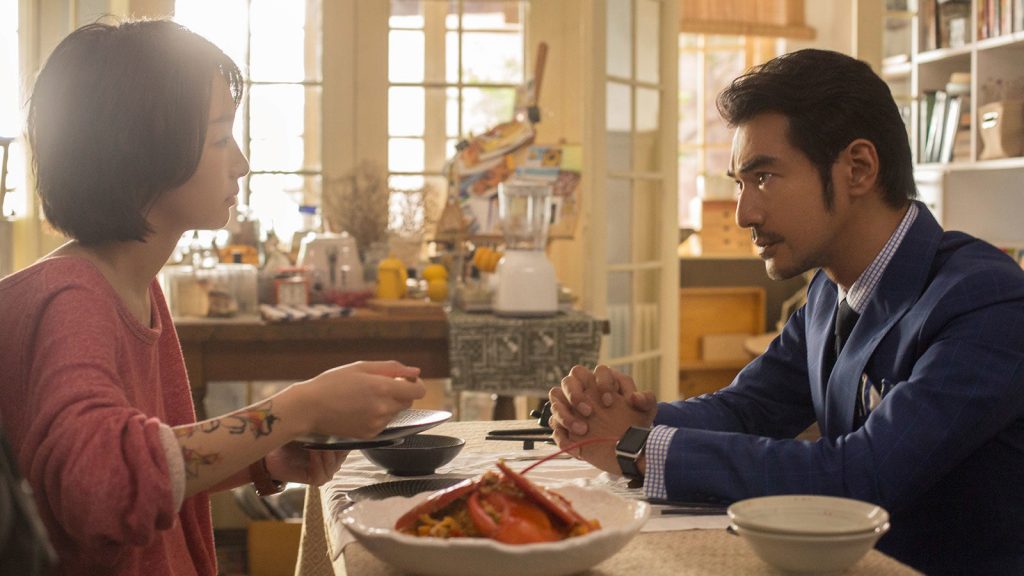
4. This is not What I Expected (Dir. Derek Hui)
This pastiche of the contemporary Chinese romcom and the old-school screwball comedy delights all the senses. Mousy and accident-prone Gu Shengnan is a brilliant chef, the best-kept secret in her fancy hotel; Lu Jin is a reserved yet rude megalomaniac millionaire. In an antagonistic antithesis of the meet-cute, the two have an unfortunate yet hilarious run-in that makes them mortal adversaries. In a comic twist of fate, die-hard foodie Lu ends up a guest of the hotel and becomes hopelessly obsessed with Gu’s intoxicating dishes. An all-consuming love-hate relationship blossoms—with food standing in for sex—amidst a succession of laugh-riot hi-jinks, as stars Zhou Dongyu and Takeshi Kaneshiro prove as effortless a comedy duo as Hepburn and Grant (Bringing Up Baby), while wryly nodding to Ge You and Shu Qi (If You Are the One). A dish to be savored. —NYAFF
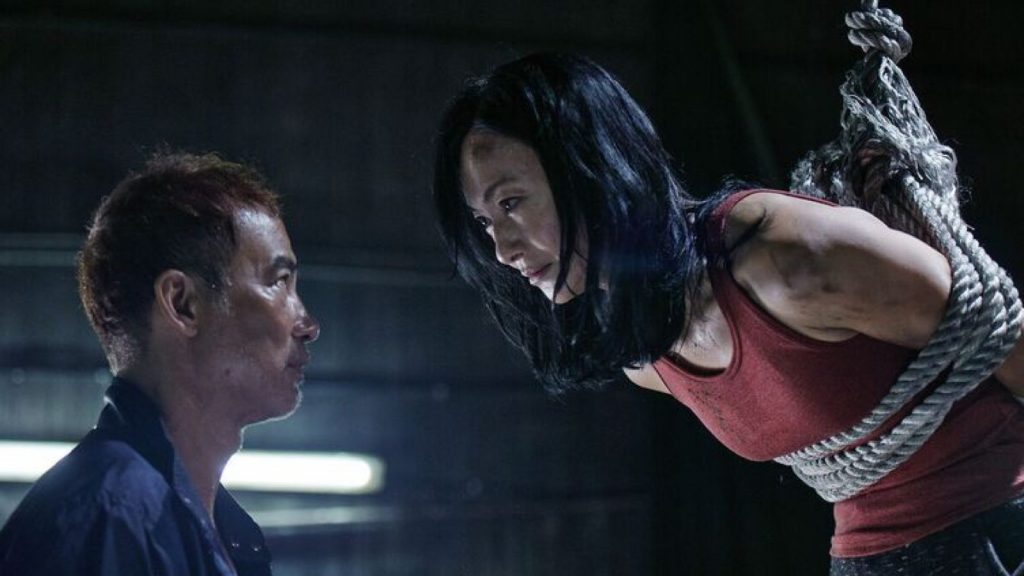
5. Mrs. K (Dir. Ho Yuhang)
This could very well be the spectacular action-movie swan song for Hong Kong actress Kara Wai. An amazing icon of 1970s and 1980s Shaw Brothers films, she’s reunited with Ho Yuhang, with whom she worked on the celebrated 2009 drama At the End of Daybreak. Whatever the eponymous Mrs. K might have been, she isn’t anymore. Comfortably settled in her role as loving housewife, she lives a suburban existence focused on her family—her gynecologist husband (Taiwan rocker Wu Bai) and her daughter (Siow Li Xuan). She is slowly easing into the idle pleasures of semi-retirement. But her peace is short-lived: a former associate (Simon Yam) from Macau has found her in her exile and is seeking retribution for a past misdeed. To save her kidnapped daughter, Mrs. K will have to return to her former bad-ass self. —NYAFF
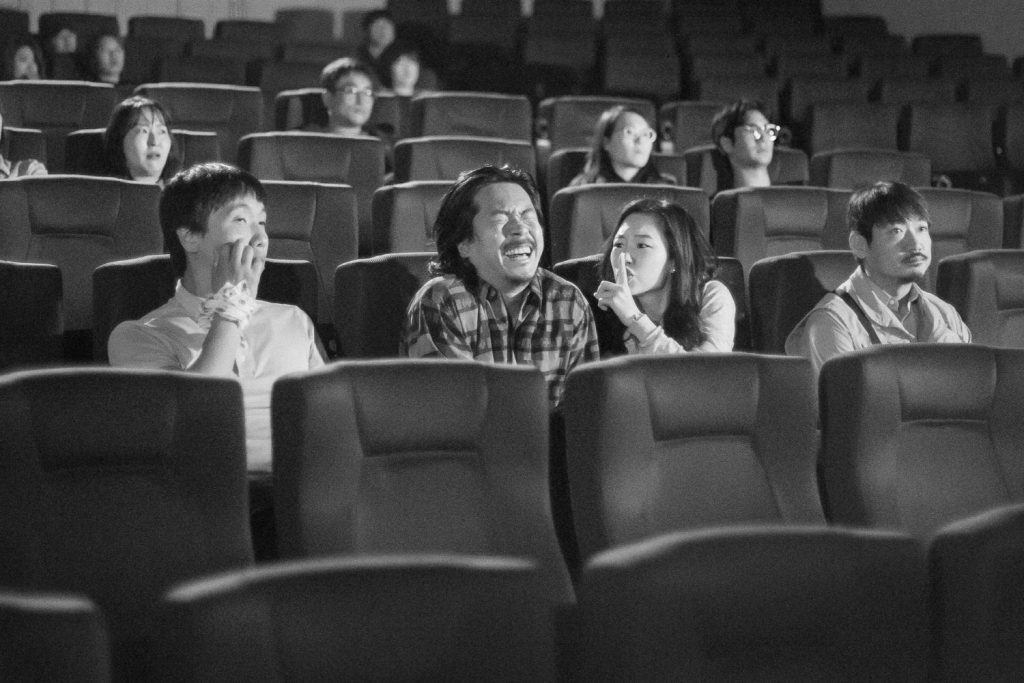
6. A Quiet Dream (Dir. Zhang Lu)
A slice of life following three misfits and their beloved muse (Han Ye-ri, in a typically unorthodox performance), a young Chinese-Korean immigrant who cares for her paralyzed father while running a bar. In a creative twist, each of the three male protagonists is played by a well-known Korean actor-director, embodying personas from their own debut films: a former small-time gangster played by Yang Ik-june (Breathless), an introverted North Korean defector played by Park Jung-bum (The Journals of Musan), and a milk-drinking, epileptic played by Yoon Jong-bin (The Unforgiven). In the guise of a quietly suburban comedy, the film addresses the hard-hitting issue of how people react to the trauma of geographical and social displacement, a subject close to home for Chinese-Korean director Zhang Lu. What makes the indie A Quiet Dream such a breath of fresh air is that it always remains hilarious and heartfelt, and maintains its poetry within an impoverished suburban milieu. —NYAFF
For tickets and more information, visit the site here.


